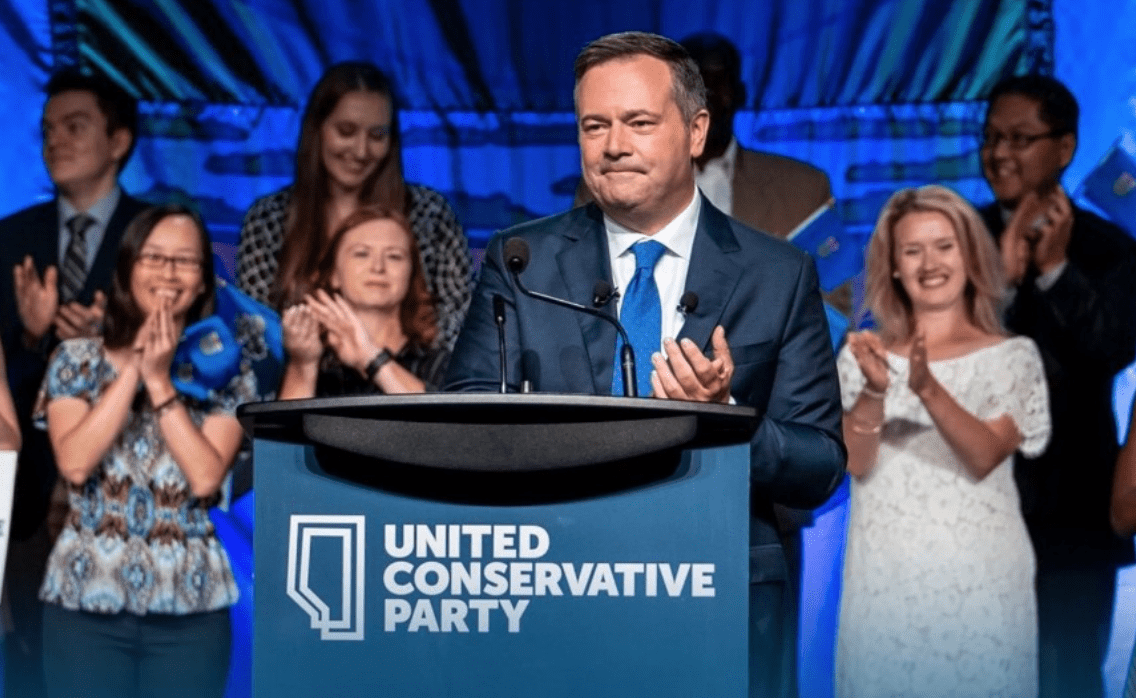Jason Kenney ran on a pretty simple platform last April: Jobs, economy, pipelines. It was emblazoned on the podium wherever he went.
Not once was there a banner that proclaimed Alberta Pension Plan, Alberta Police or Alberta Revenue Agency.
But those are among the measures he proposed in his recent fiery "fair deal for Alberta" speech to a Manning Centre gathering in Red Deer. Kenney argues his lack of a mandate to raise the possibility of rejigging confederation is no problem because he'll check with voters first if his latest blue ribbon panel makes a compelling case for the government to take this big course shift.
However, his fair deal proposal to split Alberta off from the Canada Pension Plan, the RCMP, and for Alberta to collect income taxes would actually work against his core election promises.
The plan his panel is looking at would cost an enormous amount of money to implement. It's tough to square the idea that a government with a minister of red tape reduction wants to set up the enormous administrative mechanisms to run a pension plan, a police force and revenue agency.
The potential destabilization of the province's fiscal health could cost many jobs. And unpicking the seams of confederation would give even more fuel to provinces like B.C. and Quebec who claim the right to prevent pipelines deemed in the national interest to cross their territory.
Many of the fair deal policies are pulled from a failed effort from a group of right wing conservatives, including Stephen Harper, who wrote the so-called "firewall letter" to then Premier Ralph Klein in 2001. A government panel then investigated the measures, including an Alberta pension plan and provincial police force, and rejected the ideas in 2003 as too expensive and impractical.
Kenney talks about the push for Alberta autonomy as 'emulating Quebec'. Quebec also has among the highest income tax burdens in Canada and a hefty sales tax. All that autonomy can weigh heavily on the provincial public purse, but Kenney isn't mentioning that in his fair deal speeches.
Already a variety of critics, many of them conservatively aligned, have expressed severe reservations about Kenney's ideas. Some of them include former members of the government panel that rejected the firewall letter in 2003. Former Progressive Conservative MLAs Ian McClelland and Doug Griffiths have poured cold water on the fair deal.
McClelland dubbed it an "exercise in blowing off steam" and Griffiths said the province should be working on solutions rather than creating more divisions.
The president of the Calgary Chamber of Commerce has also come out against Kenney's proposals.
"This is definitely politics over policy right now and I think the best thing for business is always certainty and having a fair deal panel creates a level of uncertainty," Sandip Lalli told the National Post.
She also argued the constant conflict between Alberta and Ottawa is doing the province no good.
Some pundits have applauded Kenney's moves as a tactic to undercut separatism in Alberta. The fair deal would stick it to Ottawa by damaging central institutions and act as a safety valve against a more radical response to perceived injustices, they argue.
The fair deal panel is having public hearings from now until January 20th, which also could act as a sounding board for how far the electorate is willing to go down the autonomy road.
But if the panel recommends proceeding with Kenney's measures in its final report next March, Kenney will be faced with two more potentially unpleasant political issues.
Greater Alberta autonomy is an idea which can easily spread to other provinces. Federal NDP Leader Jagmeet Singh was musing during the federal election that his party would not impose national infrastructure projects on reluctant provinces. Would BC argue that the general principle of provincial autonomy only shores up its rejection of the TransMountain Pipeline expansion?
And, internally, there is the spectre of rousing the demographic most likely to punish the government at the polls: seniors. Messing with the CPP is a strategy fraught with potential danger.
Critics have pointed out that AIMCo, the provincial crown corporation which would likely be the investment vehicle for an Alberta pension plan, realized an investment return of 2.3 per cent in 2018. The Canadian Pension Plan reported an 8.9 per cent return for its most recent financial year.
Photo Credit: Calgary Herald








